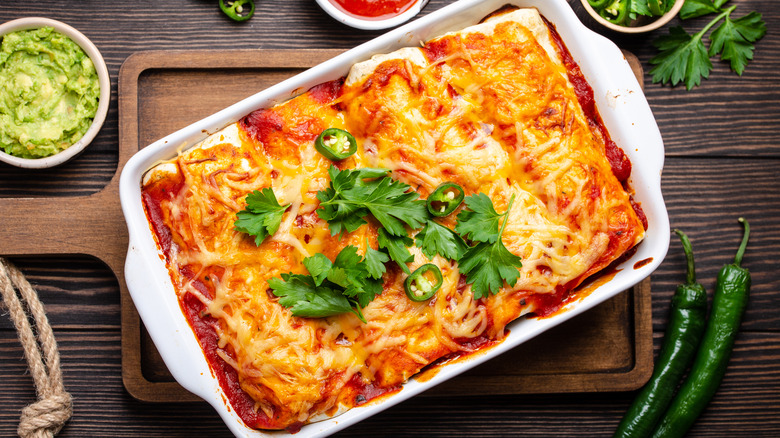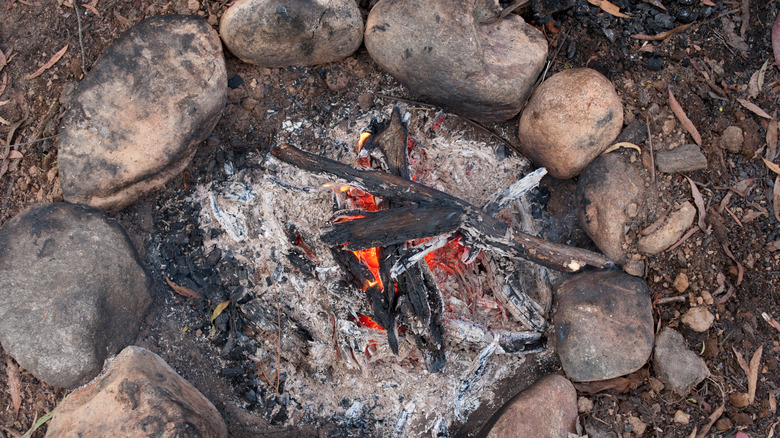The Traditional Yucatan Dish That's Buried Before Being Served On Hanal Pixán
Sometimes favorite foods get so tied to specific celebrations that they only grace our tables once a year. Like turkey on Thanksgiving or black-eyed peas on New Year's Day. Sure, they can pop up on random occasions other than the associated holiday, but never with the same fanfare. On Mexico's Yucatan Peninsula, one of those foods is mucbipollo, a traditional dish tied to the regional observance of Hanal Pixán (via Travel to Merida). Not to be confused with Mexico's nationwide celebration of Día de los Muertos, Hanal Pixán is specific to Yucatan. It's an age-old tradition dating to the Mayans who inhabited the peninsula as early as 1800 B.C. (via History).
While Hanal Pixán and Día de los Muertos share some similarities — they're both celebrated annually in late October to early November and they both mark a time to honor deceased loved ones — Hanal Pixán is associated with specific culinary traditions that are not part of the more widely celebrated, and more well-known, Día de los Muertos. The importance of food during Hanal Pixán becomes clear when you consider the English translation of the Mayan holiday is "food for souls," per Travel to Merida. And the one dish that always takes top billing? Mucbipollo.
Holding on to Mayan tradition
Also known as pibipollo, mukbil chicken, and pib, mucbipollo resembles an oversized corn tamale. It's traditionally stuffed with tomatoes, red peppers, onion, seasonings, and chicken then cooked in a pib, or underground oven. According to Na'atik, pib is an ancient cooking method used by pre-Hispanic Mayans. In short, food is cooked in a rock-lined earthen pit that's been preheated by burning kindling until it's reduced to embers. Muk means "to bury" and bil means "to stir or mix" (via Women's Wear Daily).
While the tradition of pib-cooked mucbipollo remains strong in Yucatan, it has diminished as people of Mayan descent leave the peninsula to pursue careers in urban centers. Sergio Zárate, executive chef at Grand Fiesta Americana Coral Beach Cancún, is making an effort to preserve traditions associated with Hanal Pixán by introducing guests from around the world to mucbipollo. "With all this globalization and all these people coming from small towns and living in bigger cities ... It's like they're losing touch with tradition, which is, in my opinion, what we have. It's our roots," Zárate told Women's Wear Daily. Because the sandy shores of Cancun aren't ideal for pib-style cooking, Zárate developed a recipe that recreates the essence of mucbipollo, but is cooked in a traditional oven. Women's Wear Daily reports his colleagues in the kitchen would prefer to prepare the Hanal Pixán dish using traditional methods. But the revised preparation works, and it's just in time for Hanal Pixán.

